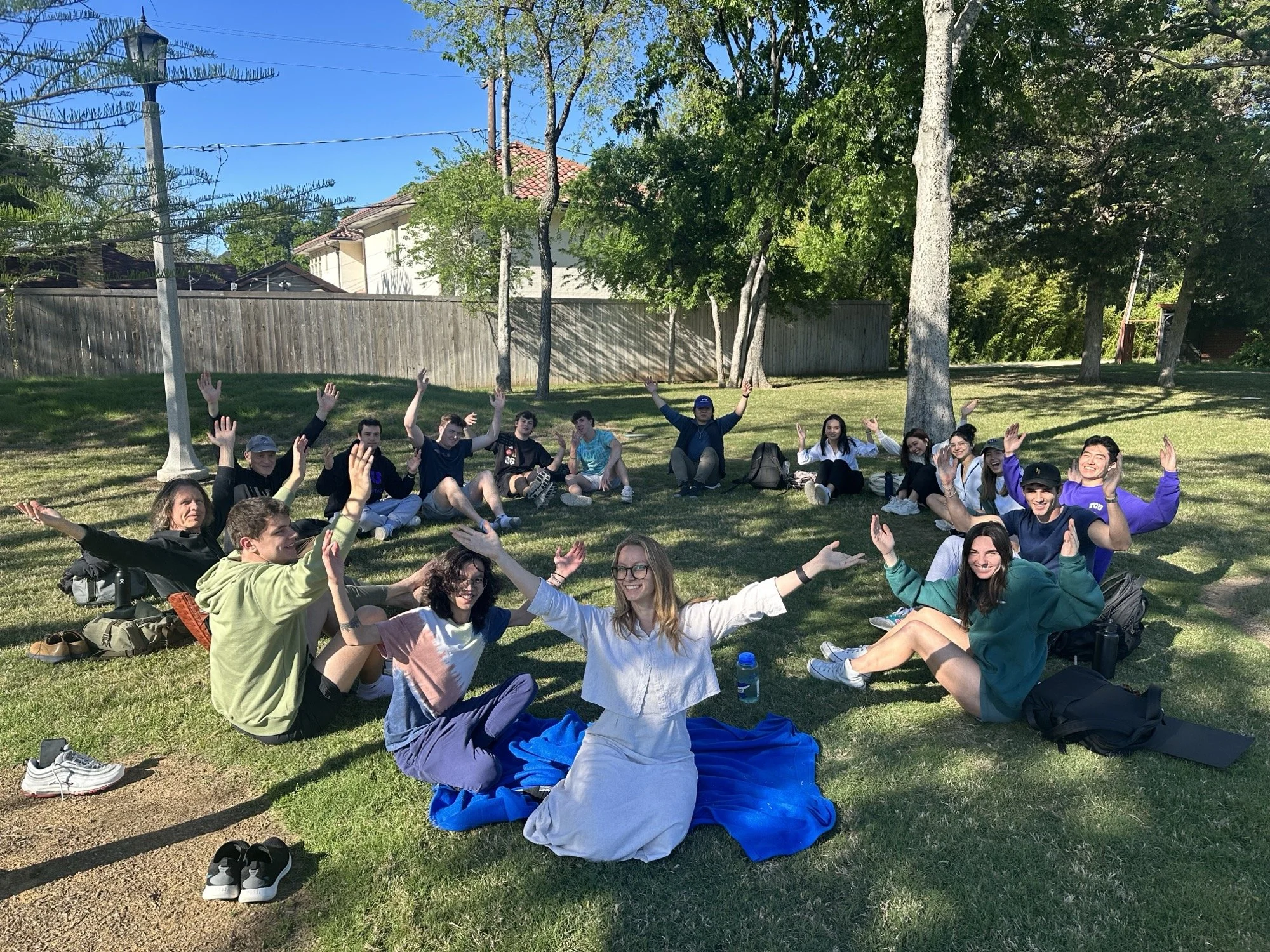
Our Affiliated Courses at TCU
Exploring different perspectives
and understanding well-being
The Art and Science of Flourishing
PHIL 20203; RELI 30533
Professor: Mark Dennis, Blake Hestir
Major Credit: Philosophy or Religion
Minor Credit: Philosophy or Religion
Core Credit: HUM
Offered: Spring Semester
This course will explore perspectives from both the humanities and sciences in ways that are directly relevant to university life, and will also engage in contemplative practices drawn from various traditions that help develop the qualities and skills—such as the capacity to manage distraction—that are key elements of flourishing. The goal is to facilitate expanded self-awareness, enhanced social connectivity, and a greater ability to work with your own inherent capacity to change. In these ways, the course will help formulate a sense of what it means to lead a flourishing life that sustains meaningful and fulfilling engagement with studies, relationships, community, and career.
Mindfulness and Modern Life
ADRN 20203
Professor: Mark Dennis, Blake Hestir
Core Credit: CA, HUM
Offered: Summer Semester
Much attention has been given to the stress college students are under today. To address this, the course considers what it means to live a “mindful” life today. What kind(s) of thinking and practice does such a life entail? How would it fit into a busy college student’s life? This course will address these questions through both theory and practice. It will range from traditional Buddhist ideas to modern science, from classic liberal arts reflection to contemporary mindfulness exercises. The course will consider how practice and reflection influence one another, and how we engage in personal relationships, society, and the natural world.
Buddhism: Thought and Practice
RELI 30533
Professor: Mark Dennis
Major Credit: RELI
Core Credit: HUM
Offered: Fall, Spring & Summer Semesters
This course will explore perspectives from both the humanities and sciences in ways that are directly relevant to university life, and will also engage in contemplative practices drawn from various traditions that help develop the qualities and skills—such as the capacity to manage distraction—that are key elements of flourishing. The goal is to facilitate expanded self-awareness, enhanced social connectivity, and a greater ability to work with your own inherent capacity to change. In these ways, the course will help formulate a sense of what it means to lead a flourishing life that sustains meaningful and fulfilling engagement with studies, relationships, community, and career.
*Refer to TCU’s course catalog offerings to view class availability
Mind Body Ecology
PHIL 30463
Professor: Blake Hestir
Major Credit: Philosophy
Minor Credit: Philosophy
Core Credit: GA, WEM
Offered: Fall and Spring Semesters
Mind Body Ecology is a philosophical as well as experiential exploration of various cross-disciplinary, cross-cultural conceptions of mind, consciousness, and self with particular attention to the interdependence of mind, body, and ecosystem. The approach of this philosophy course contextualizes these concepts within a broader conversation about regenerative inner/outer sustainability, belonging, and flourishing.
The experiential dimension involves engaging in various evidence-based contemplative practices such as meditation and land-based mindful movement as a first-person exploration of these more abstract ideas. Such an approach offers students the opportunity to develop a rich conceptual understanding of embodiment and interdependence along with fostering a practical sense of each.
The Mindful Leader
MANA 40970-065
Professor: Mark Dennis
Offered: Specialty Limited Course
This course will examine effective leadership through the lens of mindfulness. Simply put, mindfulness is the practice of actively cultivating awareness of one’s mental, emotional, and physical environments. It is to be present, alert, and engaged, whether to one’s anger, anxiety, and frustrations, to one’s partner, child, or employees, or simply to the beauty of the natural world. Studies show that sustained mindfulness practice can help reduce anxiety and stress, foster a sense of connection to others, discover joy in daily life, and increase compassionate behavior. It can also help us investigate the thinking “I” and the variety of stimuli that constantly bombard us, often diverting us from being present to the task at hand.




